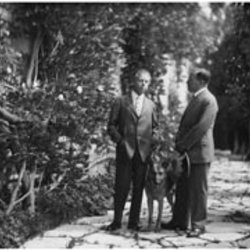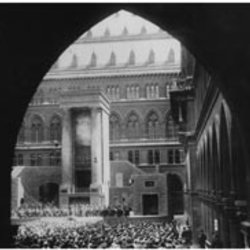Max Reinhardt and Austria
An ambivalent relationship
The impact of Max Reinhardt (1873-1943) - citizen of the world and passionate "theatre-maker" - on European theatre in the first half of the twentieth century was unrivaled. With visionary power he created a highly influential way of directing a play in which acting, setting and the action of the play form a brilliant symbiosis. Thus he became the precursor of modern theatre.
Max Reinhardt was born in Austria but started his career in Berlin. However, his name will always be connected with the Salzburg Festival, the Viennese Theater in the Josefsstadt and that important school of acting, the Reinhardt-Seminar in Vienna. The confronation between the modern ideas and practices espoused by this reformer of the theatre and the conservative views of the Austrian cultural establishment resulted in the differences that marked Reinhardt´s relationship with Austria: on the one hand his deep admiration for the actor and his view of theatre as an event was deeply informed by Austrian culture, but on the other hand he was always exasperated by attitudes that were equally characteristic of Austria - the dead hand of bureaucracy, an unwillingness to take decisions, and hesitance in the face of new devlopments.
The exhibition focuses on these ambivalences, on encounters marked by both attraction and refusal, and aims to correct the still-uncritical and thus frequently idealised relationship between Reinhardt and Austria.
With the help of original manuscripts, designs for stage-sets and costumes, photographs, critiques and personal objects the exhibition presents a clear and vivid picture of Reinhardt´s work for the theatre in Austria between 1890 and 1937 - from his earliest impressions of the theatre, his first attempts at acting in small theatres on the outskirts of Vienna and at the Stadttheater in Salzburg, to his early guest-appearances in Vienna, to his artistic work for the Salzburg Festival, the Theater an der Josefsstadt and the Reinhardt Seminar over a period of several years.
The curators of the exhibition are Edda Fuhrich and Ulrike Dembski.





